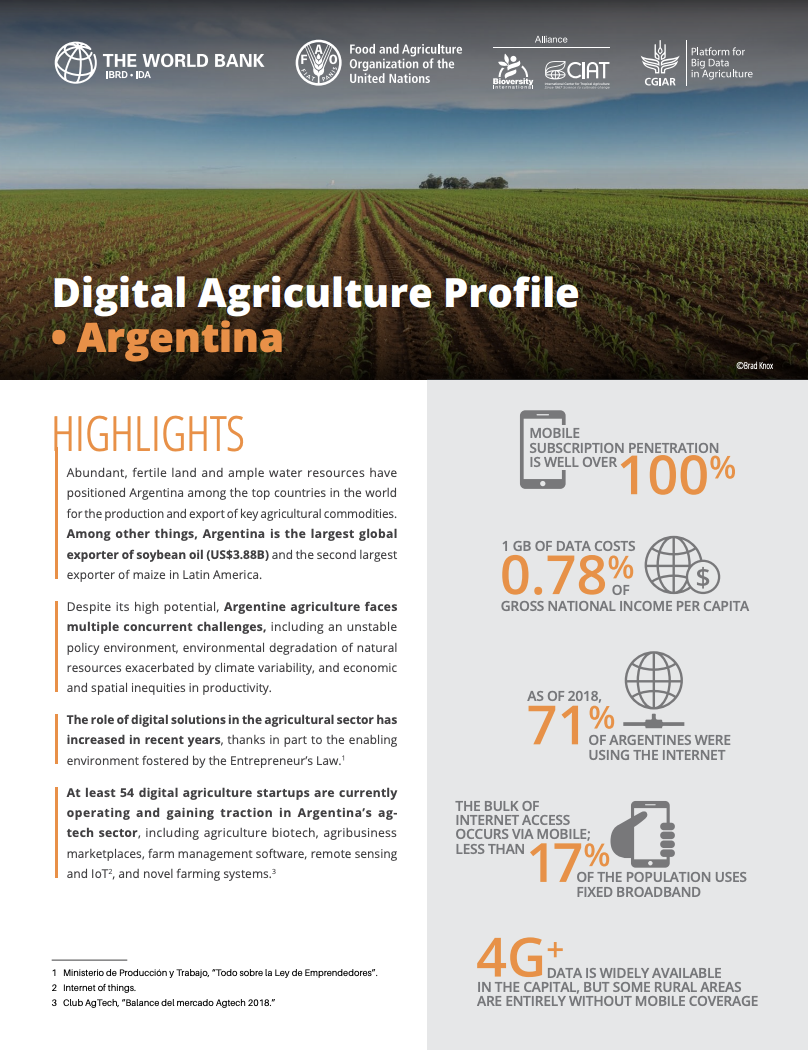The World Bank is a vital source of financial and technical assistance to developing countries around the world. We are not a bank in the ordinary sense but a unique partnership to reduce poverty and support development. The World Bank Group has two ambitious goals: End extreme poverty within a generation and boost shared prosperity.
- To end extreme poverty, the Bank's goal is to decrease the percentage of people living on less than $1.25 a day to no more than 3% by 2030.
- To promote shared prosperity, the goal is to promote income growth of the bottom 40% of the population in each country.
The World Bank Group comprises five institutions managed by their member countries.
The World Bank Group and Land: Working to protect the rights of existing land users and to help secure benefits for smallholder farmers
The World Bank (IBRD and IDA) interacts primarily with governments to increase agricultural productivity, strengthen land tenure policies and improve land governance. More than 90% of the World Bank’s agriculture portfolio focuses on the productivity and access to markets by small holder farmers. Ten percent of our projects focus on the governance of land tenure.
Similarly, investments by the International Finance Corporation (IFC), the World Bank Group’s private sector arm, including those in larger scale enterprises, overwhelmingly support smallholder farmers through improved access to finance, inputs and markets, and as direct suppliers. IFC invests in environmentally and socially sustainable private enterprises in all parts of the value chain (inputs such as irrigation and fertilizers, primary production, processing, transport and storage, traders, and risk management facilities including weather/crop insurance, warehouse financing, etc
For more information, visit the World Bank Group and land and food security (https://www.worldbank.org/en/topic/agriculture/brief/land-and-food-security1
Resources
Displaying 6 - 10 of 4907An Assessment of Customary Tenure Systems in the Lao PDR
The history of land rights in the Lao People’s Democratic Republic (Lao PDR), hereafter referred to as Laos, is a history of customary land tenure systems which remain the most prevalent form of land tenure. As social systems, land tenure systems in Laos have been affected by and have adapted to external forces such as neighboring kingdoms, colonialization, geopolitics and war, migration, and global economic trends. Ongoing rapid changes in national socioeconomic conditions and domestic political goals continue to alter the customary tenure landscape.
Tchad - Analyse des Contraintes et Opportunités pour le Développement du Sous-Secteur Agricole : Version Compléte
Cette revue du sous-secteur agricole du Tchad fait le point sur l'état des connaissances, les principales lacunes et les développements récents concernant les contraintes du secteur et propose des actions politiques et des leviers pour la transformation structurelle venir du secteur. Tout dlabord, la revue examine les possibilités de développement futur des chaines de valeur des cultures de rente et de base les plus importantes au Tchad.
Chad - An Analysis of Constraints and Opportunities in the Development of the Agriculture Subsector
This Chad agriculture subsector review investigates the state of knowledge, key gaps and recent developments in relation to constraints to the sector and proposes policy actions and levers for future structural transformation of the sector. First, the report examines the opportunities for further development of the most important cash and staple crop value chains in Chad. Then it uses the latest open data and analytics available for Chad to better inform investment priorities for agriculture in the country.
Digital Agriculture Profile Argentina
Digital technologies are slowly spreading in agriculture sectors globally. But their adoption is hampered by the digital divide which requires significant public investments, improved policy and incentive frameworks to be bridged. Only after that, digital transformation will take place at scale. DAP is meant to assess the country's readiness for this digital transformation by identifying main bottlenecks, opportunities and risks for digital transformation. DAP will thus guide public investment and policy work to accelerate the scaling up of digital transformation.
Climate Risk Country Profile: Kazakhstan
This publication synthesizes climate characteristics and projections, vulnerability to natural hazards, sectoral climate change impacts, and adaptation priorities in Kazakhstan.








